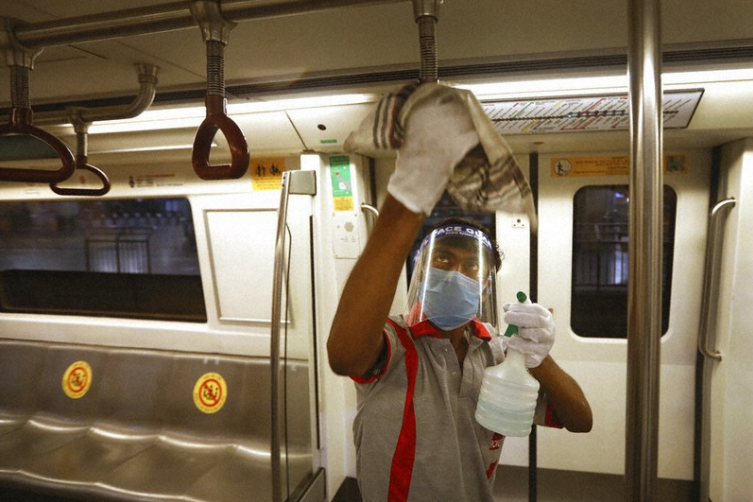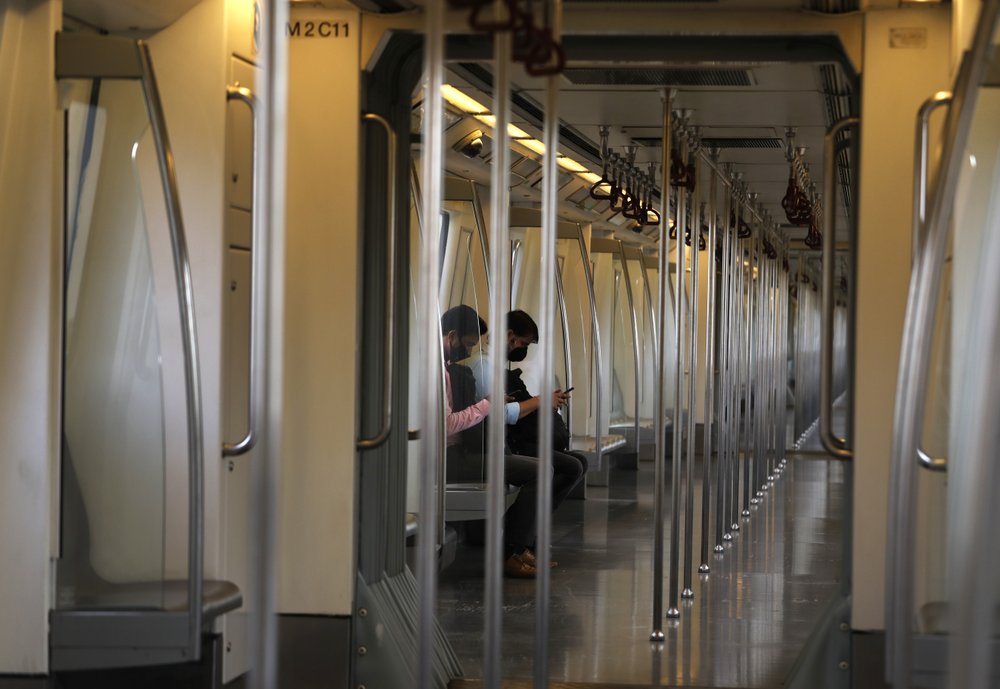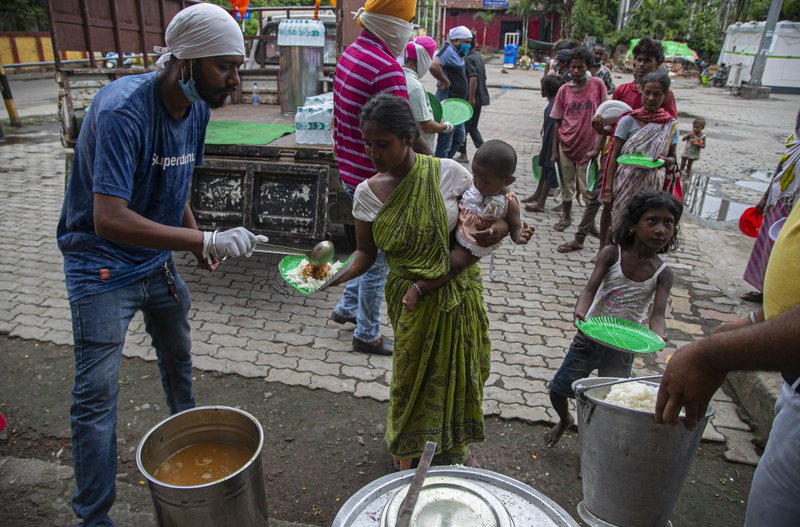India's increasing coronavirus caseload made the Asian giant the world's second-worst-hit country behind the United States on Monday.
The 90,802 cases added in the past 24 hours pushed India's total past Brazil with more than 4.2 million cases. India is now behind only the United States, where more than 6.2 million people have been infected, according to Johns Hopkins University.
India's Health Ministry on Monday also reported 1,016 new deaths for a total of 71,642, the third-highest national toll.
The world's second-most populous country with 1.4 billion people, India has been recording the world's largest daily increases in coronavirus cases for almost a month. Despite over two million new cases in the past month and the virus spreading through the country's smaller towns and villages, the Indian government has continued relaxing restrictions to try and resuscitate the economy.

A worker sanitizes a metro coach in New Delhi, India, September 3, 2020. /AP
A worker sanitizes a metro coach in New Delhi, India, September 3, 2020. /AP

Commuters travel in an almost empty Delhi metro train in New Delhi, India, September 7, 2020. /AP
Commuters travel in an almost empty Delhi metro train in New Delhi, India, September 7, 2020. /AP
On Monday, the Delhi Metro, which serves India's sprawling capital, New Delhi, and adjoining areas, resumed operations after remaining shuttered for more than five months. The commuters were scarce and stations deserted. Only asymptomatic people were allowed to board the trains, with masks, social distancing and temperature checks mandatory.
Security personnel used metal detectors attached to rods to ensure social distancing during frisking at the stations, and commuters were allowed to enter only after sanitizing their hands.
New Delhi's streets have already returned to their normal bustle, and people are again flocking to markets. The city's bars will reopen on Wednesday.

The virus has already deepened misery in the country's vast hinterlands and poorer states. /AP
The virus has already deepened misery in the country's vast hinterlands and poorer states. /AP
The reopenings come after India's economy shrank faster than any other major nation's, nearly 24 percent in the last quarter.
India's economic pain dates to the demonetization of the nation's currency in 2016 and a hasty rollout of a goods and services tax the next year. But the strict virus lockdown that started on March 24 further exacerbated the economic woes.
Now, as cases surge, most of the country, except in high-risk areas, has already opened up, with authorities saying they have little choice.
The recent surge in cases also highlights the risks of India's strategy on relying too heavily on rapid tests that screen for antigens or viral proteins. These tests are cheap, yield results in minutes and have allowed India to test over a million people a day.
The virus has already deepened misery in the country's vast hinterlands and poorer states, where surges have crippled the underfunded healthcare system and stretched resources.
The Chinese Embassy in India on Sunday announced that all passengers traveling from India to China will need to undergo coronavirus nucleic acid testing within three days before their departure and present a negative test result when boarding their flight, starting from September 14.
Source(s): AP